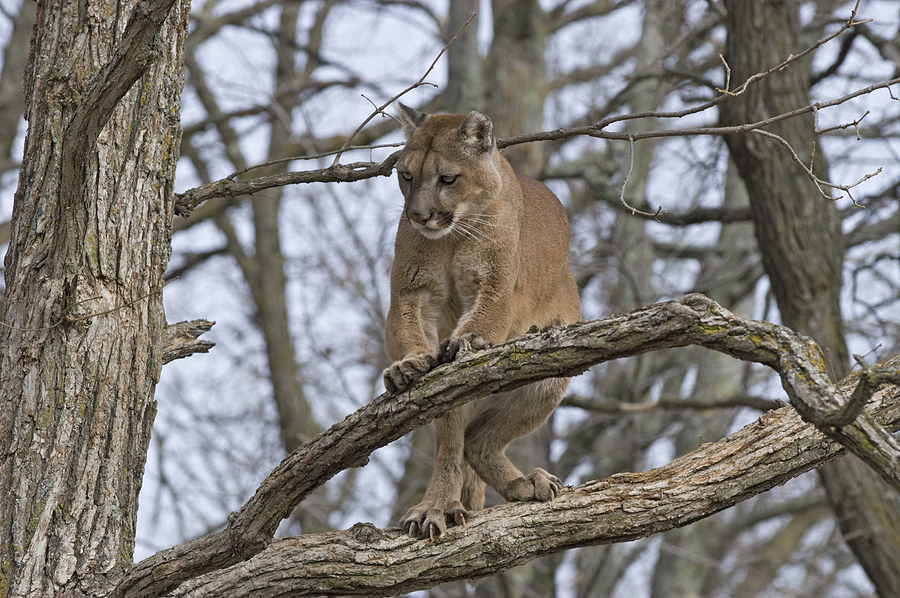
In November, Colorado voters won’t just be casting ballots for president and other state and federal elected officials. They’ll also decide whether to institute policies through ballot box biology that place unscientific restrictions on hunting and wildlife management instead of allowing conservationists and state wildlife officials to make the best, science-based management decisions regarding Colorado’s predators.
One notable name chimed in and lent his support for the anti-science measure Ballot Initiative 127. Former Obama administration U.S. Fish and Wildlife Service (USFWS) Director Dan Ashe wrote an op-ed urging voters to support a ballot initiative that would prohibit the hunting of mountain lions, bobcat and lynx. It’s not surprising Ashe would jump on board the wrong side of this issue and give weight to the anti-hunting activists pushing the measure. He has a track record of doing so that stretches back years.
Let’s remember, Ashe made the inexplicable – and unilateral – decision on his last day in office as USFWS director in the Obama administration to ban the use of traditional lead-based hunting ammunition on all federal Fish and Wildlife Service public lands. There was no science to support that decision then and there still isn’t today.
Apparently, Ashe is still given credence, mostly by anti-hunting activists, as someone who follows science when making conservation and wildlife management arguments. His track record shows he should be dismissed outright.
The Background
The mountain lion population across Colorado is booming. In fact, there are more cougars in Colorado than in any other state and that means they’ve been causing problems. Mountain lions are known for encroaching on ranches and killing livestock and other farm-raised animals. They also are known to attack hikers and joggers.
Chris Dorsey, an internationally well-known sportsman, writer and conservation advocate, cautioned Coloradans against the dangers of making conservation and wildlife management decisions at the ballot box by approving measures like Colorado’s Initiative 127. Namely, if approved, it’ll be costly and dangerous.
“The cat population boom has greatly impacted elk and deer herds that draw 350,000 hunters each year who contribute nearly $2 billion to the state’s economy,” Dorsey wrote in Forbes recently. “State biologists estimate that Colorado mountain lions kill nearly 230,000 mule deer each year—more than half the state’s entire population.”
Hunters are needed to control the overpopulation problem or it could spread to dangerous human interactions, Dorsey warned.
“When pets and people in Boulder, Aspen, Vail and elsewhere across Colorado come face to face with the big cats in their backyards, who will remember that it was ballot-box biology—and the special interests behind it—that brought us here?”
Backwards Biology Basics
With increasing frequency, animal rights activists and anti-hunting organizations are funding ballot initiatives to change how states run their respective fish and wildlife management agencies. California kicked it off in 1990 with a ballot initiative to prohibit mountain lion hunting and now the state sees more cougars killed each year than before the ban was passed by voters. Twenty-six states now allow citizens to propose legislation through the referendum process and Colorado is at the forefront. Ballot Initiative 127 is the culmination of this trend and Dan Ashe fits right in.
A similar more recent effort took place in 2020 that saw millions of dollars pour in from the New York City-based Open Society Foundation, funded by George Soros and now led by his son, Alex Soros, to push for introduction of Canadian gray wolves into Colorado. Biologists at the state’s own Parks & Wildlife Division opposed the introduction of wolves, but that didn’t matter. Now, outside money poured in to help collect voter signatures from densely populated areas like Denver and Boulder in order to garner enough signatures for the mountain lion hunting prohibition to appear on the ballot. Those residents, of course, overwhelmingly do not bear the brunt of the mountain lion overpopulation issue.
The result? Mountain lions in Colorado are wreaking havoc on deer and elk herds and on ranches and livestock. Mountain lion interactions are becoming more common in cities as the predators move in and domesticated pets become easy targets for them. Previously the state’s wildlife agencies worked with hunters to effectively and safely control cougar populations. Now they’ve been hampered and could possibly be prohibited entirely if Ballot Initiative 127 passes.
From the Ashe Heap
Former USFWS Director Dan Ashe is a wolf in sheep’s clothing. He claims to be a hunter and an advocate for hunting, but his actions demonstrate he isn’t for effective, science-based wildlife management and conservation. He is just trying to camouflage his true anti-hunting and anti-science pedigree.
Ashe wrote in The Denver Gazette (once again, the Denver newspaper is notable here) that he is joining the group Cats Aren’t Trophies in supporting the mountain lion hunting ban. That group works hand-in-glove with Animal Wellness Action, the anti-hunting animal rights activists led by Wayne Pacelle, the disgraced former head of the Humane Society of the United States (HSUS). Other anti-hunting, animal rights groups supporting CATs include the Sierra Club and Center for Biological Diversity.

Ashe may be more well known among hunters and true conservationists for his inexplicable actions on the very last day of the Obama administration when he served as USFWS director. As he left the office and turned the lights out, then-Director Ashe announced Director’s Order 219 – effectively banning the use of traditional ammunition on all public USFWS lands. Needless to say there was no scientific evidence to back up that decision. His order would’ve harmed wildlife management and conservation efforts across the country. Fortunately, Trump administration Interior Secretary Ryan Zinke reversed the directive as his first official act on his first day in office. I was joined that day by state fish and game directors and other conservation leaders to witness Secretary Zinke sign the Secretarial Order.
In Colorado, the sound science doesn’t support prohibiting the regulated and controlled hunting of mountain lions to manage their population, protect livestock and Cervidae populations as well as hikers, backpackers and joggers. Wildlife management decisions should be left to the professionals in state fish and game agencies and based on sound science. Coloradans should reject ballot box biology pushed by animal rights activists, George Soros-funded outside groups and people like Dan Ashe. Follow the science, not the poll numbers.


I am not understanding this. Colorado has a big cat problem. Colorado has a Hayshen gang problem. Hayshens like to eat cats. Big cats like to eat joggers and hikers. Seems to me there is a solution in there, somewhere.